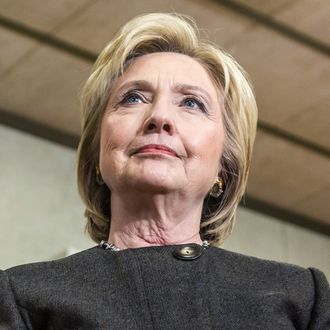
Ever since the rise of the Christian Right in the late 1970s, Democrats have been baffled about how to respond to religion-based attacks on liberal politics. They have often tried to change the subject from cultural to more congenial economic topics. More recently, they’ve promoted “dialogue” and “outreach” to conservative religious leaders, often seeking “common ground” that arguably makes irreducible differences on issues like abortion that much more apparent, while undercutting the position of progressive religious constituencies.
Barack Obama has been the subject of many intra-progressive debates over religion and politics. He entered the White House unmoored from his own faith community after having to disassociate himself from the inflammatory views (and increasingly, personal antagonism) of the Rev. Jeremiah Wright. Apparently due to security concerns, he didn’t join a church in Washington, and has habitually cited as “spiritual advisers” relatively conservative figures like prosperity gospel preacher T.J. Jakes and megachurch minister Joel Hunter. Even such “progressive” advisors as social justice crusader Jim Wallis tended towards conservatism on reproductive rights and marriage issues. Whatever his motives, Obama’s approach to “religious outreach” has not been a political success; his modest inroads into evangelical voting blocs in 2008 were largely reversed in 2012, and as he prepares to leave office, the belief that he’s not a Christian or is perhaps even a Muslim has become common among religious conservatives.
So would Hillary Clinton, a lifelong adherent of that most middle-of-the-road of Christian faith communities, the United Methodists, represent a step away from religious polarization? One would think so. But then again, a new Pew survey of religious perceptions of presidential candidates shows that Americans do not think of her as being any more religious than her main primary opponent, Bernie Sanders, who has never professed any affiliation with organized religion (both Clinton and Sanders, ironically, are perceived as more religious than evangelical voter favorite Donald Trump, though much less religious than other Republican candidates).
Still, the Clinton camp clearly thinks HRC’s faith story is important, whether it’s a matter of voter identification with her or simply a token of “authenticity.” Bill Clinton mentioned her Methodism as the key to understanding his wife in a conversation with an Iowa voter just yesterday. And Hillary Clinton herself discussed it at some length in an Iowa forum this week, saying, among other things:
My study of the Bible, my many conversations with people of faith, has led me to believe the most important commandment is to love the Lord with all your might and to love your neighbor as yourself, and that is what I think we are commanded by Christ to do, and there is so much more in the Bible about taking care of the poor, visiting the prisoners, taking in the stranger, creating opportunities for others to be lifted up, to find faith themselves that I think there are many different ways of exercising your faith. But I do believe that in many areas judgment should be left to God, that being more open, tolerant and respectful is part of what makes me humble about my faith, and I am in awe of people who truly turn the other cheek all the time, who can go that extra mile that we are called to go, who keep finding ways to forgive and move on. Those are really hard things for human beings to do, and there is a lot, certainly in the New Testament, that calls us to do that.
This is a classic liberal Christian formulation of the faith, perhaps more prosaic than Obama’s own occasionally profound ruminations on doubt as central to faith, but familiar to millions of mainline Protestants and liberal Catholics. If she continues to articulate it, she may not improve her or her party’s reputation with conservative evangelicals or traditionalist Catholics. But she will give voice to similarly inclined religious people who will no longer have to watch political liberals look past them in their preoccupation with the Christian Right, whose view of itself as representing the only authentic Christians is often reinforced by secular observers.
As veteran religion-and-politics reporter Sarah Posner acutely noted, Clinton might want to make it clear that she not only rejects the conservative monopoly on faith, but also respects political and constitutional limitations on faith and the importance of church/state separation. Replacing an arrogant and intolerant Christian Right with an arrogant and marginally less intolerant Christian Left (not that it’s ever likely to happen) would indeed represent an affront to important American traditions, and to Christian humility, for that matter. But at least Clinton is hunting for votes on her own religious turf.






























